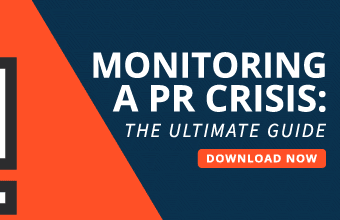As numerous U.S. states and countries worldwide begin to gradually lift their COVID-19 lockdown restrictions, “back to business” comes with a new set of consumer expectations for those brands that will continue well into the future, according to new research from integrated PR firm MWWPR. The data reveals that consumers are dissecting corporate responses to the pandemic—and as many as 83 percent will base future purchase decisions on the actions of brand leaders.
Additional leading factors that will drive brand judgement and purchase considerations include how a company treats its workforce (86 percent) and whether brands operate as a good or bad corporate citizen (84 percent) during this time.
“As economies are slowly rebuilding and businesses look to either re-open or re-engage, the rules for PR and marketing are dramatically and permanently different,” said Michael Kempner, founder and CEO of MWWPR, in a news release. “Unprecedented shifts in how people live, work and interact are forcing brands to rethink how they engage with all stakeholders and where they choose to invest matters more than ever. Brands win today by adapting to consumer demand for greater transparency and authenticity.”

“If we’ve learned one thing, it’s that it is no longer enough to react to emerging trends and issues, we must be able to anticipate needs on creative and emotional levels,” Kempner added. “This has led to a paradigm shift where once considered ‘nice to haves’ such as crisis preparation, employee communications, executive visibility and corporate purpose are now business imperatives.”
What matters to consumers now
Quality of products and services will always be table stakes for brands, but COVID-19 is changing what is important to consumers right now. A majority (73 percent) of consumers expect to hear from corporate leaders right now, highlighting one increased pressure on brands to be proactive and serve as trusted authorities for the general public. This challenge is compounded by the influence COVID-19 has had on what matters more to consumers today, and what they’re paying more attention to in these communications, including:
- The integrity of brand leaders (83 percent)
- The authenticity of brand messaging (68 percent)
- How companies prioritize the welfare of its employees (84 percent)

Policy is the new PR
COVID-19 has transformed internal corporate policy into fodder for public consumption and opinion, and consumers are paying attention. According to the survey, 84 percent of consumers cite hearing or seeing more news about how companies are messaging internally about COVID-19, and it is impacting their perception of brands overall.
The data highlights the need for a renewed emphasis on employee communications, as brands are being judged by their transparency, fairness and consistency on everything from employee sick leave to customer returns. And consumers are not the only critics: almost 1 in 5 employees believe their employer is not doing a good job communicating during this crisis, which can also compromise employee retention and recruitment efforts.

Reopening means reprioritizing
To position themselves as relevant, brands must consider the emotional and creative shifts driving the ways consumers now want to engage. With drastic changes to work and social engagements brought about by social distancing, 57 percent of consumers have started using new communication channels, and 93 percent will continue well beyond quarantine.
For those with the speed, adaptability and nimbleness required to pivot communications on a dime, there are unlimited opportunities to harness new channels and more frequent communication to meet consumers where they are today and into the future, fostering deeper connections and emotional ties to the brand.
“The power of integrated public relations has always been at the core of our company, and this pandemic has further blurred the lines between consumer PR, corporate reputation and issues management, reinforcing the CorpSumer influence on a brand’s bottom line,” added Kempner. “Understanding the insights behind the behavior and attitudes of consumers is more critical than ever to drive the post-pandemic rebound of every industry. If there was ever a time to lean into the power of public relations—leveraging earned media and corporate reputation building strategies that capture mindshare in any business economic environment—it is now.”
An online survey of 1,000 Americans was fielded between May 1-3, 2020. The survey was conducted on behalf of MWWPR by leading survey research firm Lucid. The margin of error associated with this survey is +/- 3.1%








